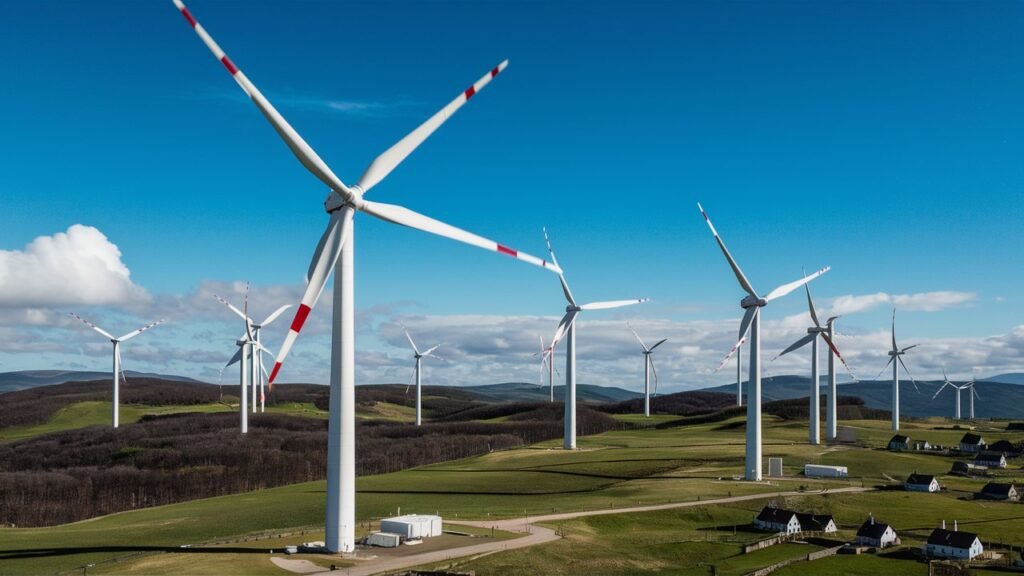AI is emerging as a transformative force to revolutionize energy management and optimization. The current UK energy grid faces challenges and demands for Energy Efficiency, reliability, and sustainability. AI is set to offer innovative solutions to modernize our energy infrastructure.
Real-Time Grid Monitoring and Optimization
AI can provide seamless optimization and monitoring of real-time data. Meanwhile, traditional energy grids rely on manual or less sophisticated methods to control, manage, and track energy flow. This leads to inefficiencies and delays in response time, which is crucial in the energy industry. Meanwhile, AI uses advanced algorithms and machine learning to continuously analyze data from various sensors and smart meters across the grid.
Predictive Maintenance and Reliability
Energy grid management requires maintenance, but traditional approaches can be expensive and reactive. With predictive maintenance, AI offers a proactive solution. Artificial intelligence can anticipate equipment faults before they happen by evaluating historical and current data. Addressing problems before they become more serious lowers maintenance costs and helps prevent unplanned outages.
For example, AI can forecast when electricity transformers or transmission lines might break by analyzing vibrations, temperature, and other signs. Because of these predictive capabilities, energy suppliers can schedule maintenance more efficiently, reducing interruptions and increasing the longevity of vital infrastructure.
Enhanced Integration of Renewable Energy
As the world moves toward renewable energy options, difficulties with integrating renewable energy sources into the grid have become the main concern of energy companies. AI is crucial to control the unpredictable and irregular character of renewable energy sources, including wind and solar energy.
Artificial intelligence algorithms can forecast renewable energy output using historical data, current conditions, and weather patterns. Grid managers can forecast changes in the energy supply and modify other generation sources under this forecasting capability. For instance, the system may automatically boost production from other sources or draw from energy storage to balance the grid if AI forecasts a decline in wind energy owing to shifting weather.
Improved Demand Response and Consumer Engagement
AI is also improving demand response programs, which encourage users to modify their energy usage to balance the supply and demand for energy. Energy suppliers can develop focused plans to manage the load efficiently by employing AI-driven systems that forecast peak demand periods and analyze usage patterns.
AI can also provide users with tailored advice on how to lower their energy usage. AI-powered smart home systems can optimize lighting, heating, and cooling based on user preferences and real-time data, lowering environmental impact and saving money.
Securing the Grid with AI
Cybersecurity is a growing concern. AI offers reliable defences against cyberattacks on energy networks. AI programs can track network traffic in real-time and spot abnormal patterns that might point to a security breach. By early threat detection, AI can assist in preventing attacks that could disrupt the electricity supply or compromise sensitive data.
Verdict:
Artificial Intelligence is more than a technology innovation; it’s revolutionizing the energy industry. AI increases demand response and renewable energy integration through proactive maintenance, real-time tracking, and grid security by improving the efficiency of electricity grids. Technology is set to play an increasingly significant role in shaping the future of energy systems in the coming years and bringing the possibility of a reliable, sustainable, and energy-efficient environment.
By incorporating AI into energy management, we can embrace a future in which energy systems are more adaptable, resilient, and aligned with our sustainability objectives rather than just keeping up with technical improvements. AI and energy infrastructure will be essential to meet the world’s expanding energy needs and preserve the environment for future generations.



